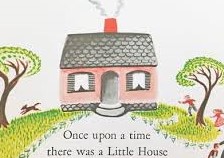Two stories about a restrictive covenant
June 2, 2019 BCH Development sought to build a two-story house; the neighborhood association sued to enforce a restrictive covenant limiting construction to a “single family dwelling not to exceed one story in height.” Because a two-story house stood on the neighboring lot, BCH argued waiver; the association countered that 1 nonconforming lot out of 104 could not establish waiver. The Fifth Court remanded for trial on the issue of waiver, noting: “Waiver in restrictive covenant cases is a fact-intensive inquiry involving multiple factors. A statistical analysis is but one component in determining the issue of waiver. Also relevant are the nature and severity of existing violations, any prior acts of enforcement of the restriction, and whether it is still possible to realize to a substantial degree the benefits intended through the covenant.” BCH Development v. Lakeview Heights Addition Property Owners’ Assoc., No. 05-17-01096-CV (March 21, 2019). Notably, the opinion was decided by a 2-judge panel of Justices Myers and Brown, after Justice Evans was not re-elected in 2018.
BCH Development sought to build a two-story house; the neighborhood association sued to enforce a restrictive covenant limiting construction to a “single family dwelling not to exceed one story in height.” Because a two-story house stood on the neighboring lot, BCH argued waiver; the association countered that 1 nonconforming lot out of 104 could not establish waiver. The Fifth Court remanded for trial on the issue of waiver, noting: “Waiver in restrictive covenant cases is a fact-intensive inquiry involving multiple factors. A statistical analysis is but one component in determining the issue of waiver. Also relevant are the nature and severity of existing violations, any prior acts of enforcement of the restriction, and whether it is still possible to realize to a substantial degree the benefits intended through the covenant.” BCH Development v. Lakeview Heights Addition Property Owners’ Assoc., No. 05-17-01096-CV (March 21, 2019). Notably, the opinion was decided by a 2-judge panel of Justices Myers and Brown, after Justice Evans was not re-elected in 2018.